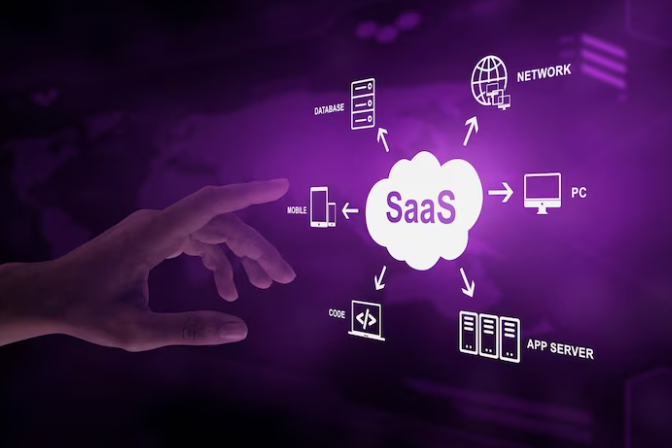In the digital realm, SaaS and ERP stand as individual powerhouses, each playing a pivotal role in the operational structure of modern enterprises. SaaS, known as Software as a Service, delivers applications over the internet, offering scalability and accessibility. On the other hand, ERP (Enterprise Resource Planning) integrates various business processes into a unified system, enhancing efficiency.

Understanding SaaS and ERP
SaaS, with its subscription-based model and remote accessibility, offers unparalleled flexibility and cost-effectiveness. However, it does present challenges related to data security and dependency on internet connectivity. Meanwhile, ERP encompasses various functionalities, including finance, human resources, and supply chain management, streamlining operations and data management.
SaaS ERP: Synergy of Two Systems
The integration of SaaS and ERP brings forth a synergy that revolutionizes business operations. This union not only enhances the scalability and flexibility of the software but also optimizes the resource planning process.
Benefits of SaaS ERP Implementation
The implementation of SaaS ERP brings forth a myriad of benefits, including improved scalability, cost-effectiveness, and remote accessibility, empowering businesses to operate seamlessly across geographies.
Key Components of a SaaS ERP Solution
SaaS ERP solutions are composed of various modules and features, offering customization and integration capabilities, allowing businesses to tailor the system according to their specific needs.
Challenges in Implementing SaaS ERP
Implementing SaaS ERP comes with challenges related to data security, integration complexities, and transitioning processes. Overcoming these challenges is crucial for successful implementation.
Selecting the Right SaaS ERP Solution
Choosing the right SaaS ERP solution involves considering various factors and learning from successful case studies to ensure an effective and tailored implementation.
SaaS ERP in Different Industries
The application of SaaS ERP spans across various industries, showcasing its adaptability and tailored solutions that address sector-specific needs.
Future Trends and Innovations in SaaS ERP
The future of SaaS ERP is intertwined with emerging technologies like AI, IoT, and predictive analytics, promising an evolution in the landscape of business operations.
Adopting SaaS ERP: Best Practices
Successful adoption involves effective change management strategies and comprehensive training, ensuring seamless integration and user adoption.
Case Studies: Successful SaaS ERP Implementations
Real-world examples illustrate the impact and outcomes of SaaS ERP implementation, providing insights and lessons for businesses.
The Impact of SaaS ERP on Business Operations
SaaS ERP not only enhances efficiency and productivity but also enables businesses to achieve measurable results, fostering growth and competitiveness.
SaaS ERP and Digital Transformation
SaaS ERP plays a pivotal role in driving digital transformation, enabling businesses to adapt and stay competitive in a dynamic market.
Conclusion
In conclusion, the synergy between SaaS and ERP in the form of SaaS ERP is a transformative force in modern business operations. Its integration brings efficiency, adaptability, and a competitive edge in the dynamic market.
Frequently Asked Questions
- How does SaaS ERP differ from traditional ERP systems?
- What are the primary challenges in implementing SaaS ERP?
- Can SaaS ERP be customized according to specific business needs?
- What industries benefit most from SaaS ERP implementation?
- How does SaaS ERP contribute to digital transformation in businesses?